
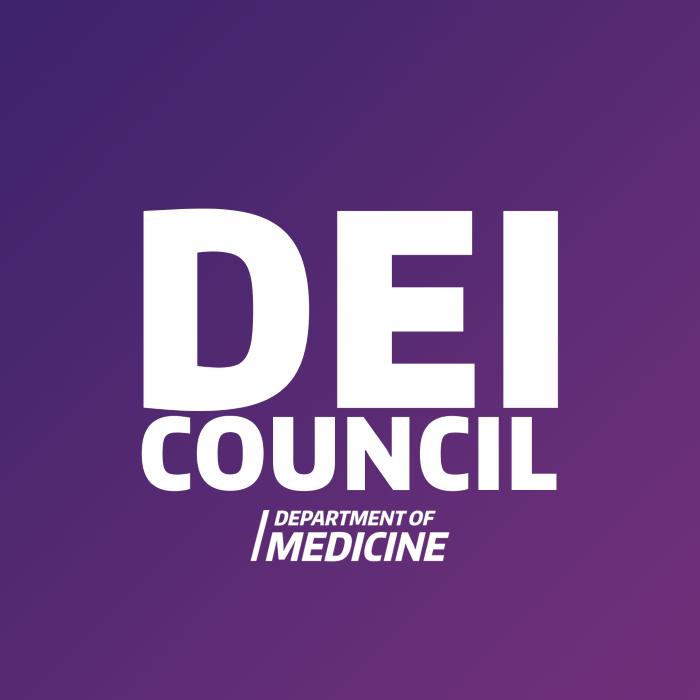
Recent DEI efforts in the Department of Medicine
At their annual year-end retreat, the Department of Medicine DEI Council strategized how they can move our diversity, equity and inclusion efforts further within the department.
Strategic plan
The Department of Medicine’s strategic plan was formed in 2021 and one of the Key Result Areas (KRA) was to “nurture a supportive, collaborative culture where equity, diversity and inclusion are at the center.”
The DEI Council works in tandem with the DEI strategic plan workgroup to produce results in this key area.
Recent initiatives
Bias Navigator Program
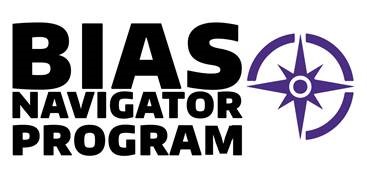 Our Bias Navigator Program provides trained individuals dedicated to providing safe, confidential support to help guide our faculty, staff and trainees through bias incident they may have experienced.
Our Bias Navigator Program provides trained individuals dedicated to providing safe, confidential support to help guide our faculty, staff and trainees through bias incident they may have experienced.
DEI Resources
We developed a list of resources for our website in six categories:
- Data & Measurements
- Education & Training
- Equity
- Inclusion & Belonging
- Outreach
- Workforce Development
Diversity Lecture Series
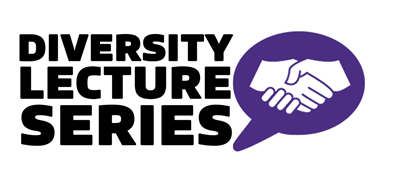 As part of our commitment to provide educational opportunities and DEI resources for our staff, faculty, and trainees, we have partnered with the Institute for Common Power to provide a quarterly lecture series.
As part of our commitment to provide educational opportunities and DEI resources for our staff, faculty, and trainees, we have partnered with the Institute for Common Power to provide a quarterly lecture series.
Staffing
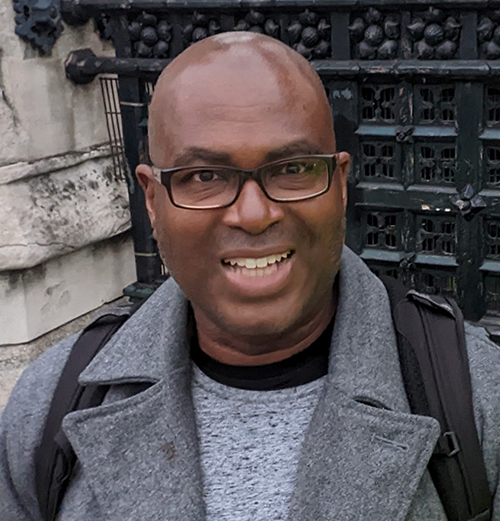 Michael Dudley was hired as a full-time data analyst to help with one of our priorities to compile and increase access and availability to robust demographics data in the department.
Michael Dudley was hired as a full-time data analyst to help with one of our priorities to compile and increase access and availability to robust demographics data in the department.
Diversity Champions
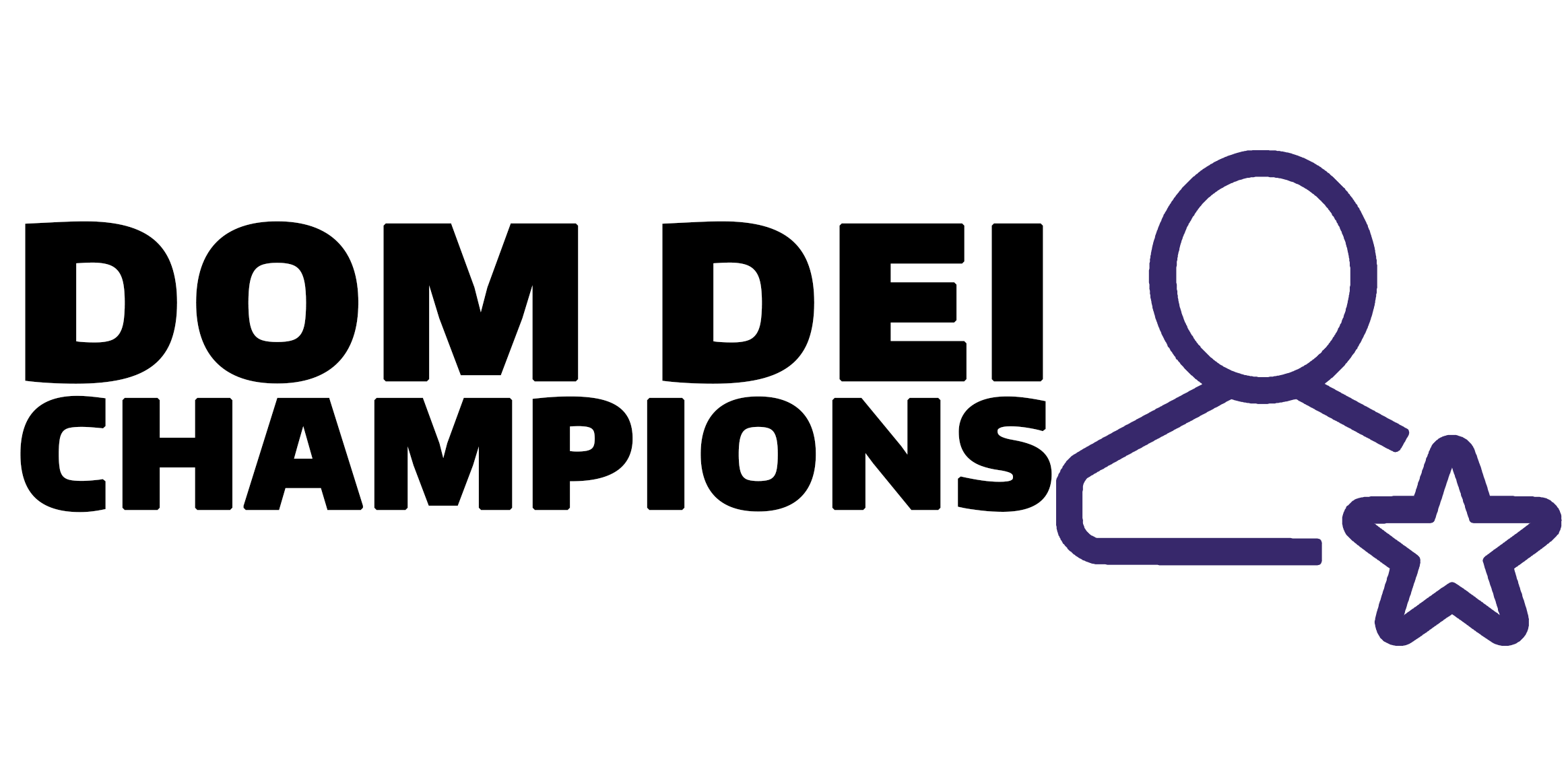 Staff and faculty DEI Champions were put in place in each division. DEI champions play a critical role in fostering real organizational change, establishing a dedicated focus on diversity, equity and inclusion priorities, fostering a welcoming and belonging environment, managing division level DEI planning, and identifying and disseminating best practices.
Staff and faculty DEI Champions were put in place in each division. DEI champions play a critical role in fostering real organizational change, establishing a dedicated focus on diversity, equity and inclusion priorities, fostering a welcoming and belonging environment, managing division level DEI planning, and identifying and disseminating best practices.
LIFT program
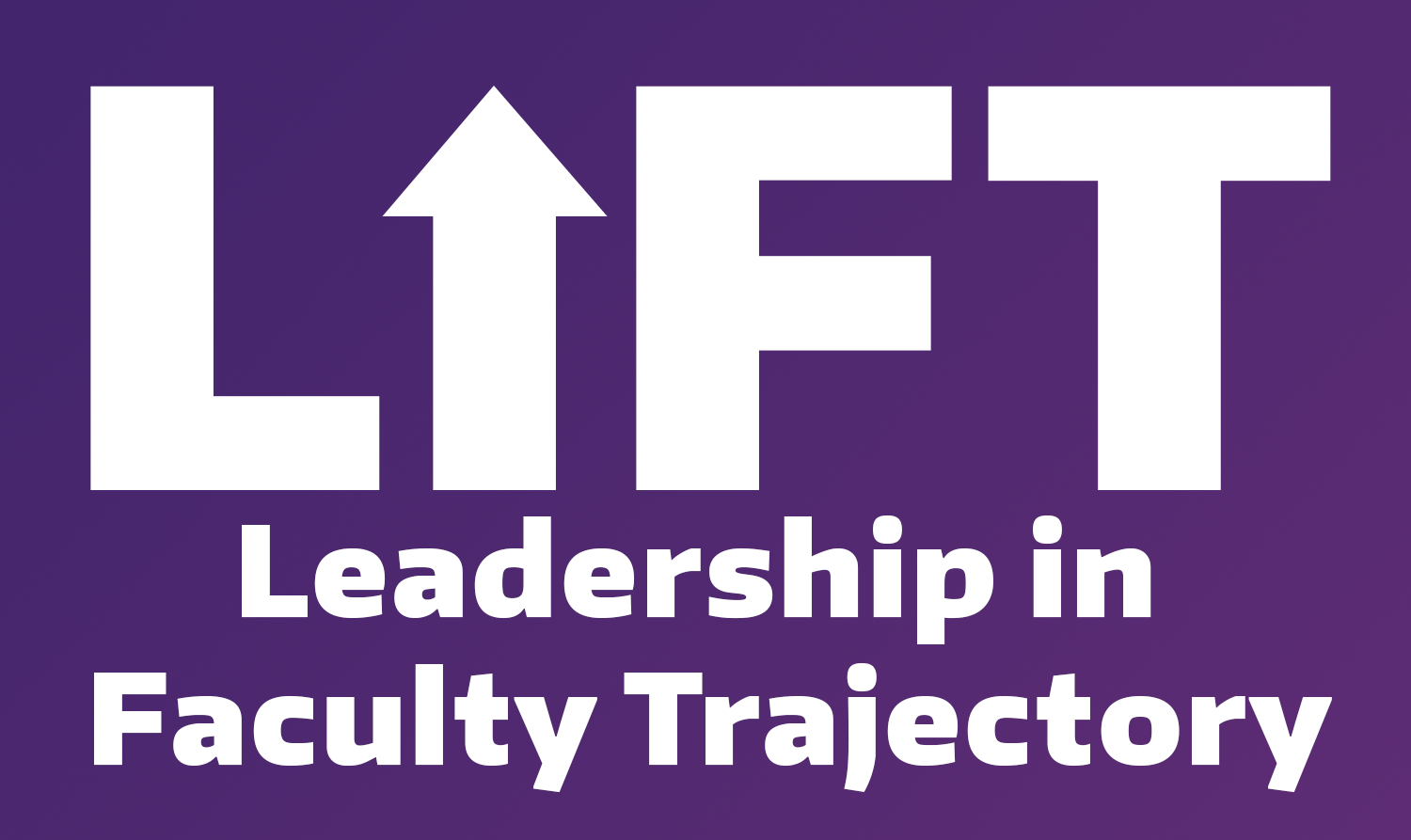 In 2022, the Department of Medicine Gender Equity Council introduced the Leadership in Faculty Trajectory (LIFT) program.
In 2022, the Department of Medicine Gender Equity Council introduced the Leadership in Faculty Trajectory (LIFT) program.
The LIFT pilot program helps faculty, particularly women faculty, access sponsorship and individualized guidance for the promotion process.
Restorative practices
Restorative practices are strategies that help us to proactively build community and relationships and manage conflict and tensions in ways that treat humans with dignity and respect.
Our initial focus is on community building:
- Affirming community values
- Welcoming new members
- Creating intentional space to show up and speak authentically
- Sharing perspectives and experiences
- Building stronger communities
Community outreach
Spotlight: LatinX Diabetes Clinic
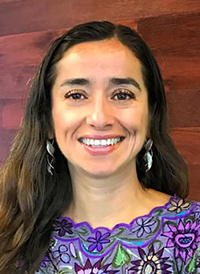 Directed by Dr. Lorena Alarcon-Casas Wright, the LatinX Diabetes Clinic aims to decrease healthcare disparities by addressing cultural and linguistic barriers by offering:
Directed by Dr. Lorena Alarcon-Casas Wright, the LatinX Diabetes Clinic aims to decrease healthcare disparities by addressing cultural and linguistic barriers by offering:
- Bilingual Care
- Culturally appropriate nutrition counseling and diabetes education
- Access to technology and new therapies
- Referral to specialized care: Nephrology, Cardiology, Ophthalmology, Vascular Surgery
- Financial assistance
The clinic enhances our teaching mission by increasing opportunities for medial trainees to understand the cultural and sociological aspects of diabetes care. There is a 2-month Endocrinology fellowship rotation and opportunities for clinical research and QI projects.
 Recent publication: Use of a Continuous Glucose Monitor System (CGM) in Latinx Patients with Type 2 Diabetes (DM2) Improves A1C and CGM Metrics—Real-Life Experience in a Latinx Diabetes Clinic. Lead author is Dr. Arita Thatte, ambulatory chief resident.
Recent publication: Use of a Continuous Glucose Monitor System (CGM) in Latinx Patients with Type 2 Diabetes (DM2) Improves A1C and CGM Metrics—Real-Life Experience in a Latinx Diabetes Clinic. Lead author is Dr. Arita Thatte, ambulatory chief resident.
The clinic also aims to improve the overall health of the Latinx community, regionally and nationally, through increased clinical and basic science research. A multicultural, bilingual 12-module program was created specifically for Latinx populations to improve diabetes self-management.
Compañeros en Salud
Established in September 1999, Compañeros en Salud / Partners in Health, NFP, is a grassroots coalition charged with assisting members of the community in accessing appropriate healthcare and social services.
Compañeros en Salud has been evaluated in two previous studies and pilot tested in Seattle.
Dr. Nicole Erhardt is leading a clinical trial to determine the impact of the Compañeros en Salud (Partners in Health) curriculum in conjunction with real-time continuous glucose monitoring on Latinx patients with type 2 diabetes.
Next Steps
The DEI Council looks to build upon the foundation established through the year 1 deliverables of the DEI strategic plan which includes building community within the department and creating an environment that is welcoming, inclusive and promotes a sense of belonging for all.
Contact us for ways to get involved in our DEI efforts.